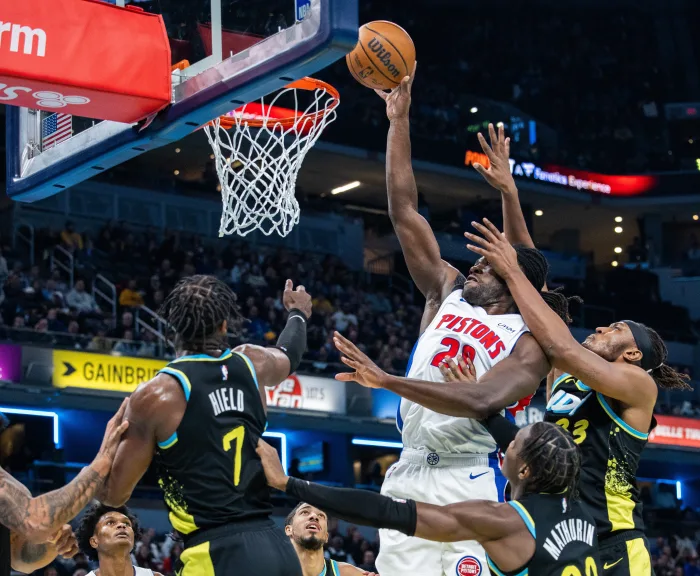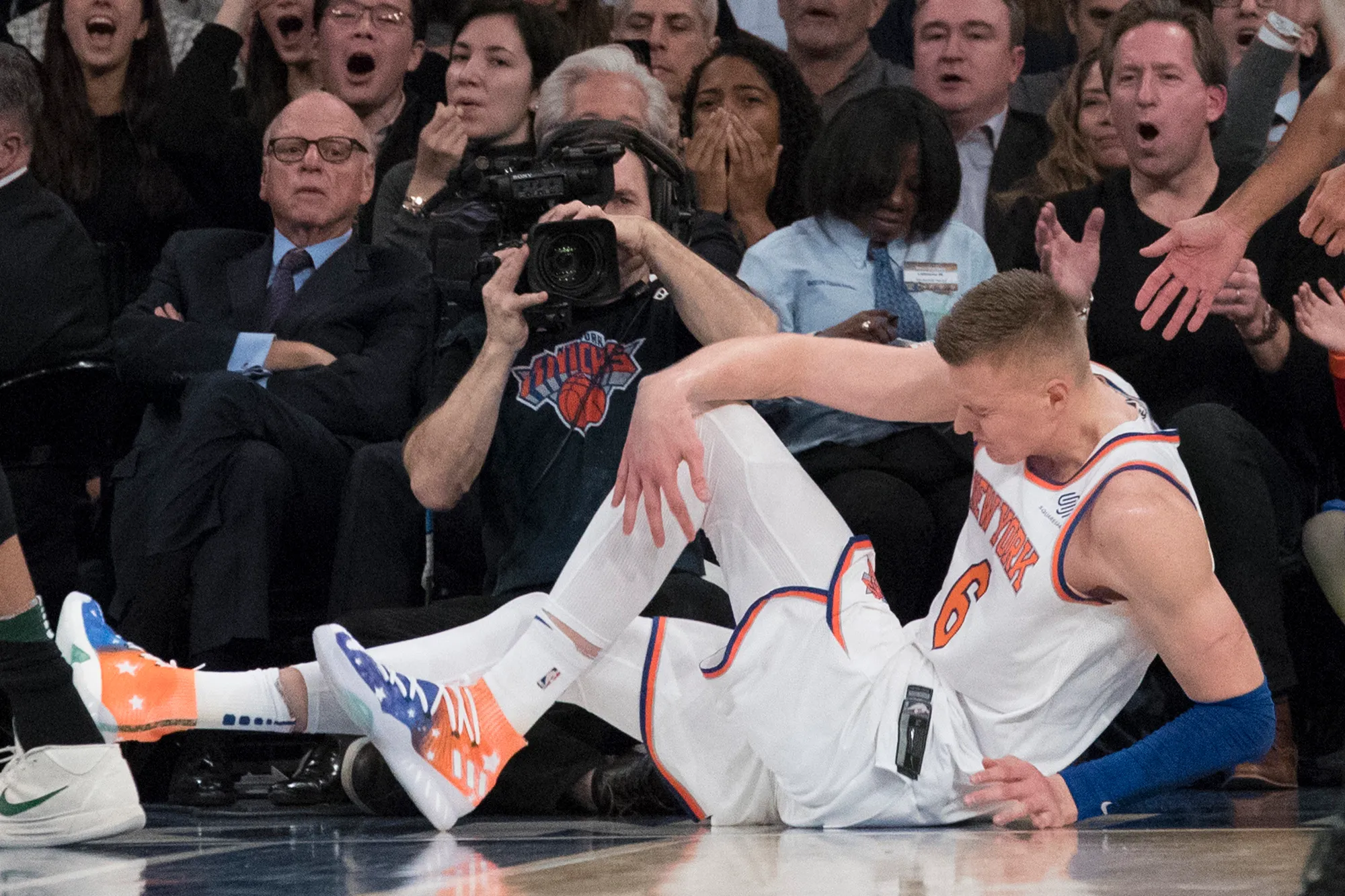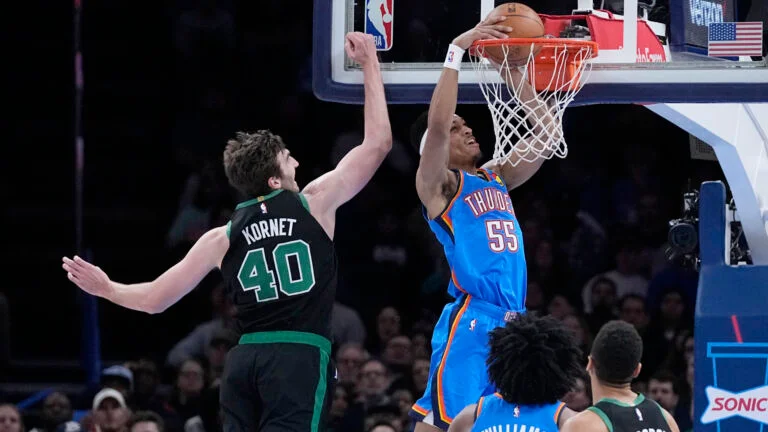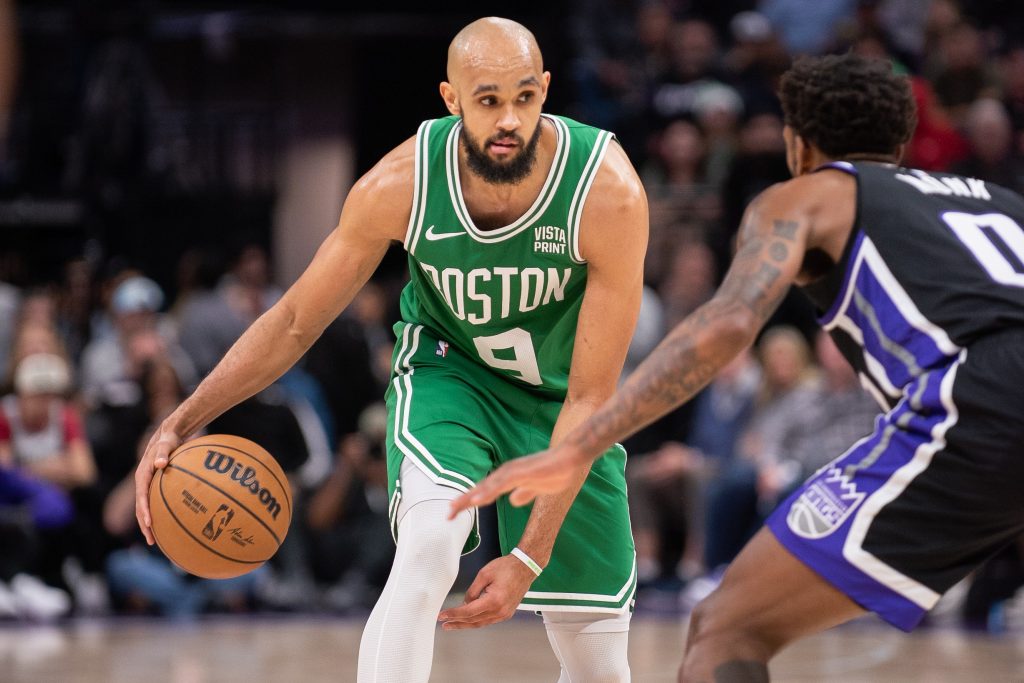
Isaiah Stewart is the type of playoff-rotation caliber player the Celtics should target at the four and five spots. Just don’t expect Boston to acquire
Between now and the Feb. 8 trade deadline, the Boston Celtics face a decision that, if they get it wrong, could stand in the way of them finishing this season as champions.
Are they willing to put their trust in Luke Kornet, Neemias Queta, and small-ball options to play the pivot in the playoffs if they’re without Kristaps Porzingis or Al Horford?
And would a smaller-scale move like the one they made last February, acquiring Mike Muscala at the deadline, or adding a center on the buyout market allow them to overcome losing one of their top-two players at that position?
Should the C’s choose to get more aggressive, they have their first-round picks from 2024-2027 and three second-round selections in the upcoming draft they can offer to help strengthen their rotation.
Any proposal must comply with the Stepien Rule, preventing teams from trading out of the first round of back-to-back future drafts. However, possessing another team’s first-round selection would cover a franchise for the year of that pick. Also, this clause looks forward but not back, so not picking in the first round in previous years isn’t held against teams.
Boston putting its draft ammunition toward adding a playoff-rotation caliber player who can operate at the four and the five positions would be ideal.
And on a day where NBA insider Shams Charania reported “the Celtics will be active in the trade market to pursue bench help,” James Edwards III, who covers the Detroit Pistons for The Athletic, notes they’ve “shown great interest” in Isaiah Stewart
Edwards also lists the Dallas Mavericks and Oklahoma City Thunder as teams who fit that description.
He reported in June that Boston checked in with the Pistons about Stewart over the summer.
The 22-year-old from Rochester, New York, starts at the four for Detroit but also plays the pivot. He’s averaging 10.2 points and 6.8 rebounds, and he’s improved from beyond the arc, converting on 36.7 percent of his 3.6 three-point attempts this season.
While his on-court abilities make him an ideal acquisition, Stewart has a poison pill restriction until Jul. 1, 2024, and has a four-year, $60 million extension that kicks in next season.
The latter has an average annual value of $15 million. So, from a financial standpoint, the Celtics would have to gut their extended rotation, meaning those outside their top eight. It may also cost them Payton Pritchard.
But Stewart’s extension is the more significant impediment. The Celtics are over the second apron this season, the last one before Jaylen Brown’s veteran supermax extension takes effect. And they intend to sign Jayson Tatum to a supermax extension this summer.
They’ve also tacked two years and $60 million onto Kristaps Porzingis’ contract and plan for Jrue Holiday to be in Boston beyond this season.
So, while the former Washington Husky is precisely the type of player the Celtics should target, the financials make Stewart an unlikely acquisition.



Be the first to comment